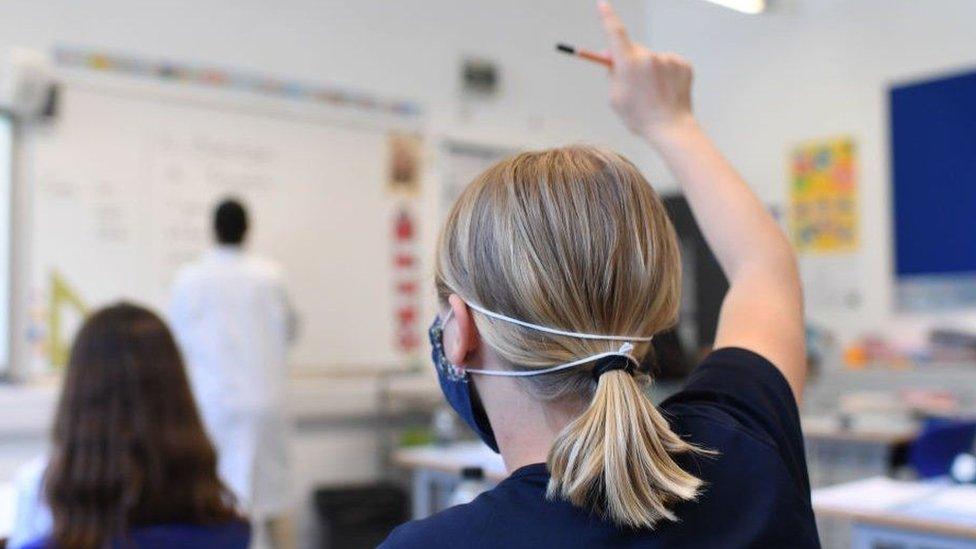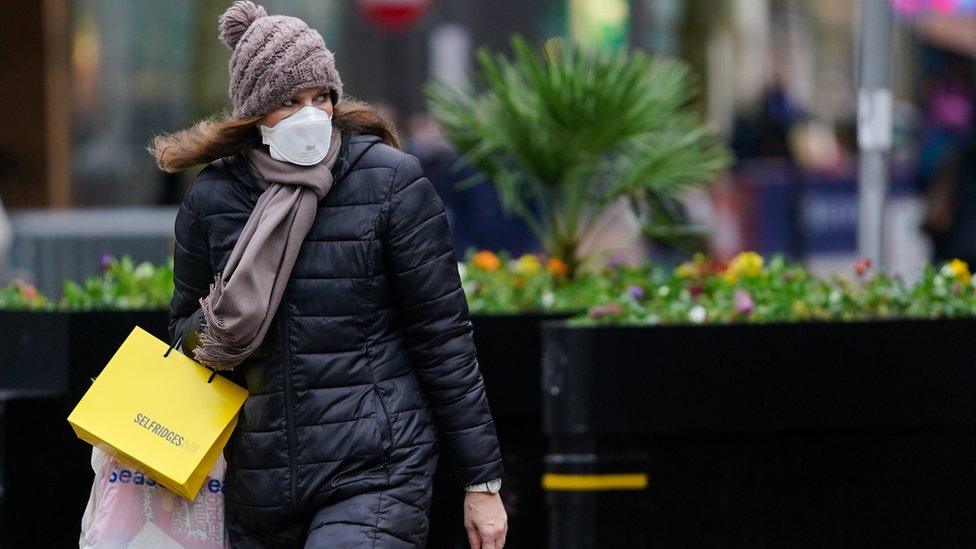Covid: School appeals to students to keep wearing masks
- Published

Secondary school students no longer have to wear face coverings in classrooms
A head teacher has written to students and parents asking them to continue wearing face coverings in class despite secondary school rules being lifted.
Andy Byers, from Framwellgate School, County Durham, warned against a blanket lifting of Plan B restrictions while rates remained high in the North East.
His school has about 60 students and 10 staff absent due to Covid.
Rate figures for the week to 16 January show the 12 North East councils were in the 14 worst-hit places in England.
Masks in secondary schools are no longer required in classrooms and will not be needed in communal areas from 27 January, in changes announced on Thursday.
The prime minister said the decision to return to Plan A reflected a fall in Covid-19 cases and the success of the booster campaign, telling MPs that scientists believed the Omicron wave had peaked nationally.

Mr Byers told the BBC the government announcement had taken him by surprise and did not give the school time to speak to students and parents in advance.
"We haven't seen a fall in case rates and I am concerned that the decision has been taken as a blanket measure across the country and doesn't really reflect the context of our own school," he said.
"The alternative is that transmission continues to stay high and staff and students are absent."
South Tyneside had the highest rate of Covid-19 cases in England in the seven days to 16 January, with 1,628 cases per 100,000 people, followed by Sunderland, Peterborough, Middlesbrough and Darlington.
North Tyneside, Hartlepool, Stockton, Telford and Redcar made up the rest of the 10 worst-hit places, although cases had dropped week on week in every English local authority.
It comes as public health bosses from the councils that make up the LA7 - Gateshead, Sunderland, South Tyneside, North Tyneside, Newcastle and Northumberland - urged people to remain cautious to continue to slow infection rates.
"We are in a much better place, but the pandemic is far from over," they warned.

Follow BBC North East & Cumbria on Twitter, external, Facebook, external and Instagram, external. Send your story ideas to northeastandcumbria@bbc.co.uk, external.
Related topics
- Published19 January 2022

- Published20 January 2022